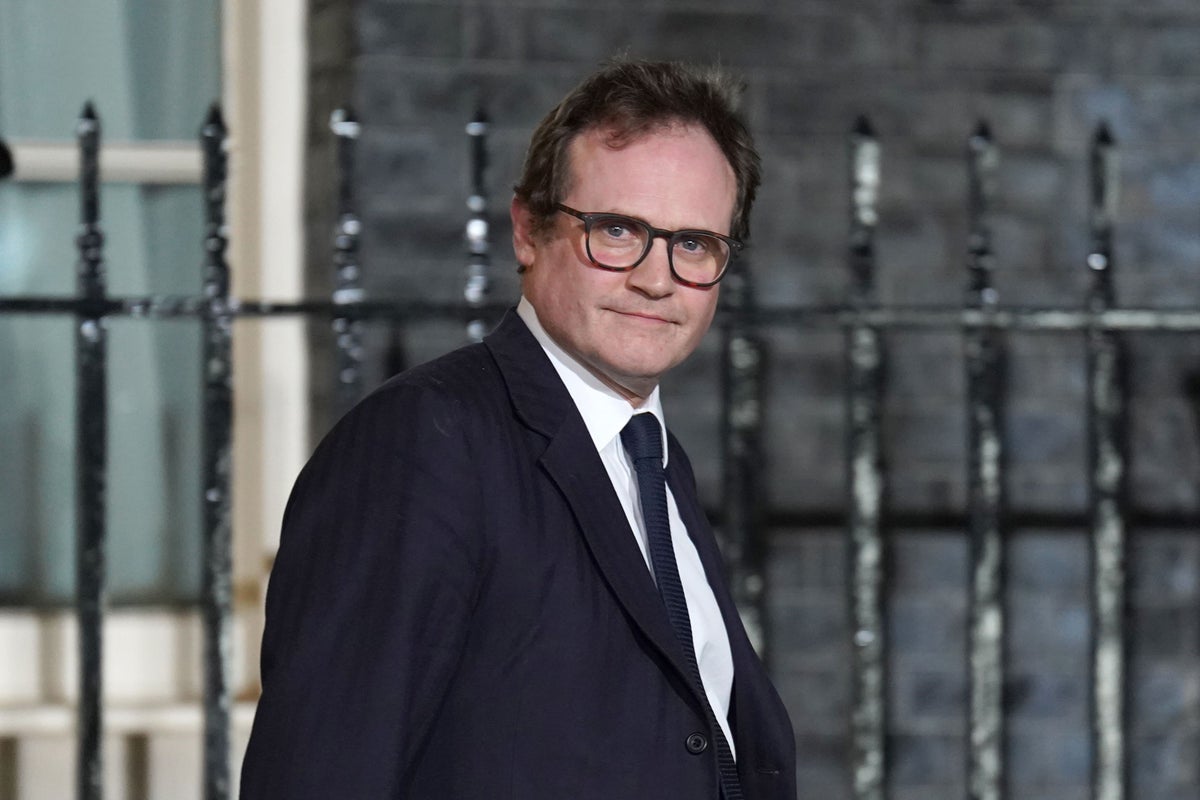
A new taskforce has been announced to protect British democratic institutions from foreign interference as the Government warned of a growing threat from hostile states.
The body will look at both physical and online threats to MPs, security minister Tom Tugendhat said.
He warned that “dictatorships are trying to write new rules for a new world” and said Russia’s invasion of Ukraine was an example of the “growing threat from hostile states”.
Mr Tugendhat’s announcement follows reports that Liz Truss’s personal phone was hacked while she was foreign secretary by Moscow’s agents and warnings from the National Cyber Security Centre (NCSC) about an “acute” online threat to the UK from Russia, China, Iran and North Korea.
The security minister told MPs: “The advanced technologies our rivals have spent time and money developing have levelled the field and made us more vulnerable.
“Britain has been on the front line of the defence of liberty for generations; our agencies, and businesses have faced the reality of this danger for decades.
“Our Parliament and our politics are now no different, whether it’s ministers or shadow ministers on committee, or when leading a campaign, this is about every party and every member of this House.”
He told MPs there had been attempts by “unfriendly states to influence our politics in recent years”.
Mr Tugendhat said Prime Minister Rishi Sunak had asked him to lead the new taskforce to work with Parliament, government departments, the security and intelligence agencies, the devolved administrations and the private sector.
“The taskforce will look at the full range of threats facing our democratic institutions,” he told MPs.
“This will include the physical threats to members of this Parliament and those elected to serve across the country, so tragically brought home by the murder of our dear friends Sir David Amess last year and Jo Cox in 2016.”
The next few years, sadly, are likely to be more challenging than the last— Tom Tugendhat
The taskforce will report to the National Security Council and would involve cross-party co-operation.
The security minister added: “This work is for all of us in this House, and those who have asked us to represent their interests.
“The Government has robust systems in place to protect against cyber threats. We are vigilant in ensuring that these are up to date and meet the challenges of the modern world.
“The National Cyber Security Centre, Government and parliamentary security offer all members specific advice on protecting personal data and managing online profiles as well as best practice guidance.”
In a message to shadow home secretary Yvette Cooper, he said he would welcome her thoughts, adding: “There is an awful lot that we must do together. The next few years, sadly, are likely to be more challenging than the last.
“The indications are not great. We need to work together, this is not about one party or one government, this is about defending the right of the British people to choose their future, democratically and freely without the influence of foreign states.”
Ms Cooper said: “We will support his taskforce, but he will need to show us that there is some kind of grip in Government on attitudes towards security right across the heart of this Government.”
Highlighting actions by Boris Johnson, Ms Truss and Mr Sunak, she said: “When you have one prime minister (Mr Johnson) who put security at risk to go to Italy for a party, another (Ms Truss) who is allegedly using a personal phone for Government ministers and a third (Mr Sunak) who is defending his predecessors and reappointing as Home Secretary someone described on the Government’s own backbenches as ‘leaky’, this undermines our national security.
“And national security is too important for this kind of chaos.”
The announcement of the new taskforce came as NCSC’s annual report set out details of the cyber threats facing the UK.
“Over the last year, the NCSC has continued to see state actors present a significant threat towards the UK and global cyber security,” the report said.
“While many countries use malign cyber capabilities to some extent, including to control their domestic information environments, the regimes that continued to present the most acute cyber threat to the UK and its interests were Russia, China, Iran and North Korea.”
The report said that over the last year, businesses and organisations in the UK reported hundreds of cyber incidents to the NCSC, 63 of which were significant enough to require a national level response.
They included 18 ransomware incidents, including attacks on a supplier to NHS 111, and a water utility company, South Staffordshire Water.







